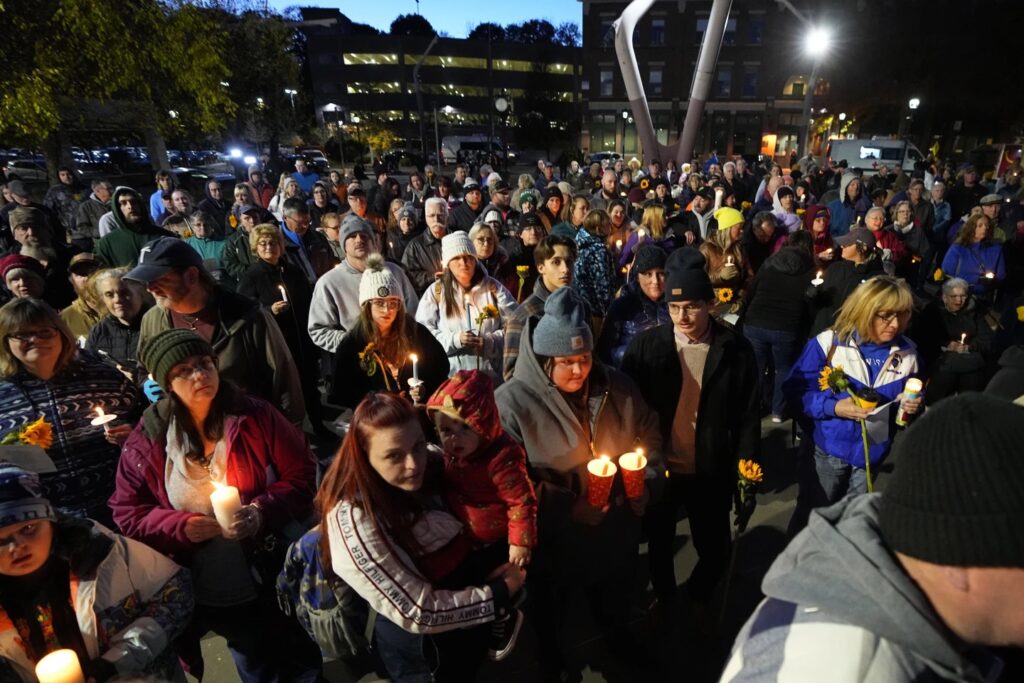
In the middle of September 2023, a deputy visited Robert Card’s home in Bowdoin, Maine. Prior to this home visit, Card — a former U.S. Army Reservist — had been involuntarily hospitalized by the Army after a violent outburst, released after examination, declared non-deployable, and disallowed from accessing firearms during his time in the army.
Along with this, his son claimed that Card thought that “people were saying things about him” and his ex-wife said that he “picked up 10-15 handguns/rifles.” A member in Card’s Army unit also alerted police about Card, saying he was going to “snap and commit a mass shooting.” The deputy found no one at home, which triggered an “armed and dangerous” alert on Card’s behalf. Law enforcement visited Card’s home the next day and reported he was home, but no one was answering the door. In October, the police canceled the statewide alert regarding Card’s disappearance.
A few days later, 18 people were shot dead in Lewistown, Maine and 13 were found injured. This marked the 36th and deadliest mass shooting in America this year.
Law enforcement were given clear indicators by people close to Card and by the Army, but chose to ignore it. Why? Why wasn’t anything done to prevent the atrocities of October 25?
Robert Card’s actions and law enforcement’s inaction serve as good reasons for states to adopt Extreme Risk Protection Order Laws, or Red Flag Laws. These laws temporarily remove guns out of the hands of people with mental health issues who have displayed signs of planning to hurt themselves or others in the future after an evidentiary hearing. Law enforcement officers can temporarily restrict individuals from having access to firearms after an evidentiary hearing resulting in a court order.
Considering that around 32% of mass shooters have made their plans known before committing their violent attacks, these laws not only make sense for our current reality, but are completely necessary.
Unfortunately, only a little over 20 states have adopted Red Flag Laws, with Maine not being one of them. Maine instead has the nation’s only “Yellow Flag Law” which elongates the aforementioned process to remove a gun from a mentally unstable individual’s possession. When someone reports an individual because they may be a threat to themselves or others, the individual is put under medical evaluation. With the results of the evaluation, an evidentiary hearing takes place to determine whether or not the individual should be able to possess a firearm. If not, a court order is issued to temporarily restrict the individual from having a firearm. This Republican-written law, introduced in 2021, arguably makes people weary to report their loved ones because of the arduous process that follows.
The fact that the Yellow Flag Law was not used to prevent the Maine gunman proves its ineffectiveness. Swift action was not taken because the law simply did not call for it. To see a change in both the amount and frequency of shootings in America, changes in policy needs to be made. We cannot stand by and wait for a dangerous individual to be reported, evaluated, and then go through a trial and await a court order. It could be too late by then as proven by Card’s actions. The entire country needs to wake up and realize that innocent Americans are dying every week because of preventable circumstances. When is enough going to be enough?
In America, the 2nd amendment is doctrine because lawmakers have yet to put the lives of hundreds of gun violence victims over a law written centuries before a machine gun or automatic rifle was even imagined. A gun is a tool with only one known purpose: to kill. How does it make sense for people to have unrestricted access to a machine capable of such destruction? We need Red Flag Laws everywhere to prevent further preventable tragedies like this from happening again, not half-measures which have evidently been proven insufficient.



